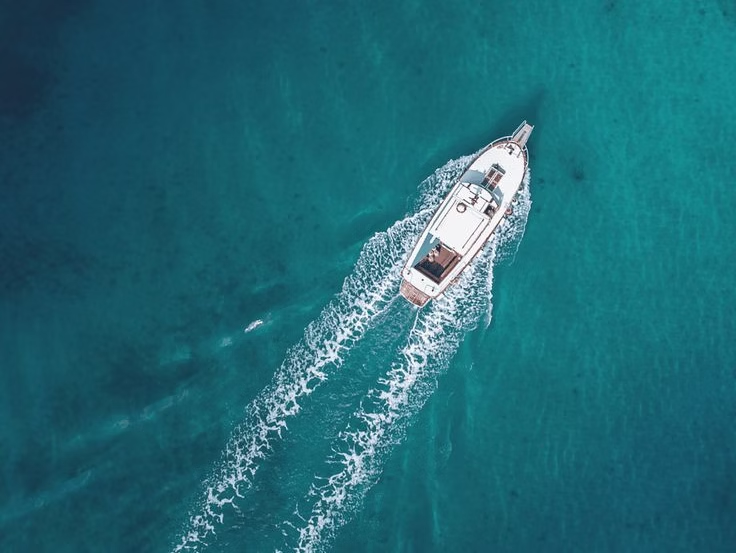Whether you’re cruising along the coast, fishing on a serene lake, or exploring new waterways with friends, every water adventure brings excitement and risk. One of the most important questions to ask before untying from the dock is: do I need boat insurance?
If you’re unsure, you’re not alone. Many boaters, especially first-time owners, wonder whether boat insurance is essential or just another optional expense. In this guide, we’ll break down the realities of boat ownership, the risks involved, and how boat insurance can offer critical protection for both your vessel and your peace of mind.
The Financial Lifeline: Why Boat Insurance Makes Sense
Think of boat insurance as a financial lifeline. Boats, like cars or homes, represent significant investments. Whether your vessel costs $15,000 or $150,000, the possibility of storm damage, theft, fire, or an accident with another watercraft can turn your dream into a nightmare fast.
If something goes wrong, comprehensive boat insurance ensures you won’t be paying for costly repairs or a full replacement out of pocket. Coverage typically includes liability (if you harm someone or damage another boat), physical damage, towing, and even fuel spill cleanup. Considering the cost of a major repair could run into tens of thousands of dollars, that annual premium suddenly becomes a savvy investment in financial security.
Premiums vs. Pitfalls: A Practical Tradeoff
Some boaters hesitate to insure their watercraft, citing premium costs as a concern. But let’s put that in perspective. The average boat insurance premium ranges from $300 to $1,500 annually. Compare that to the price tag of replacing an engine or paying legal fees after a collision, and it’s easy to see why the tradeoff leans in favor of insurance.
Many insurance providers also offer ways to lower your costs. Discounts for bundling with home or auto policies, maintaining a safe boating record, installing safety gear, or taking a certified boating safety course can lead to significant savings. It’s smart protection at a smart price.
The Real Risks: Stories from the Water
Real-life boating accidents happen more often than you might think. Imagine this: a relaxing Saturday sail takes a turn when your boat is sideswiped by another vessel. No insurance? You’re on the hook for everything: your own repairs, the other boater’s damages, and possibly medical bills.
Consider the case of a Florida boater who racked up over $50,000 in damage from a single collision costs that could have been mostly covered with an adequate policy. According to the U.S. Coast Guard, there were over 5,000 reported boating accidents in 2021, resulting in hundreds of fatalities and thousands of injuries. Without insurance, you’re vulnerable not just to mechanical issues, but to the legal and financial fallout of unpredictable mishaps.
What the Law Says: State Requirements & Legal Exposure
In the United States, boat insurance laws vary by state. Some, like Arkansas and Utah, may require liability insurance if you operate certain types of vessels or dock in a public marina. Others leave the decision up to the boat owner.
Even in states where insurance isn’t mandated, marinas often require proof of insurance to dock your boat. And if you’re financing your purchase, lenders will almost always insist on insurance coverage. Failure to comply can mean fines, revoked boating privileges, or worse being held personally liable for damages if you’re involved in an incident.
The bottom line? Don’t assume you’re in the clear. Always check your state’s specific regulations before hitting the water.
Understanding Coverage Types: From Basic to Specialized
Boat insurance isn’t one-size-fits-all. Depending on your vessel, your usage, and your needs, you may want to tailor your policy. The most common types of coverage include:
-
Liability Coverage: Protects you if you cause injury or damage to someone else.
-
Collision Coverage: Pays for damage to your boat from accidents.
-
Comprehensive Coverage: Covers theft, vandalism, or weather-related damage.
-
Uninsured Boater Coverage: Safeguards you if you’re hit by someone without insurance.
Some boaters also opt for add-ons like towing assistance, personal effects coverage (for gear like GPS units or fishing rods), and protection for trailers. Planning to race or engage in water sports? Make sure your policy accounts for those activities.
Value Matters: Replacement vs. Actual Cash Value
When selecting a policy, pay attention to how your insurer values your boat. There are two main approaches:
-
Actual Cash Value (ACV): Covers your boat’s depreciated value at the time of the loss. This is typically cheaper but may leave you short when replacing your boat.
-
Agreed Value (or Replacement Value): Offers a predetermined payout if your boat is totaled. Though premiums may be higher, it ensures you get what your boat is truly worth.
Understanding these distinctions helps you choose a plan that aligns with your expectations and financial goals.
Hidden Costs of Boat Ownership
It’s easy to focus on the purchase price when buying a boat, but the true cost of ownership goes far beyond that. There’s maintenance, fuel, storage, winterization, registration fees, safety equipment, and more.
When something goes wrong and it eventually will, repairs can be expensive. Having the right boat insurance can soften those unexpected blows and keep your budget intact, especially during the busy boating season.
Peace of Mind on the Water
Insurance doesn’t just protect your bank account it also protects your enjoyment. The stress of what could go wrong can weigh heavily on boaters, especially new ones. Knowing you’re covered allows you to relax, unwind, and focus on the beauty and fun of your time on the water.
From the simple joy of a lazy afternoon float to the adrenaline rush of water sports, your boat should be a source of pleasure not anxiety. A well-structured insurance plan ensures that even when things don’t go as planned, your adventures don’t have to end.
Don’t Fall for the Myths
Many boat owners believe misconceptions that can lead to costly mistakes. For example:
-
“I only use my boat a few times a year.” Even occasional use doesn’t eliminate risk. Accidents, theft, or dock damage can happen any time.
-
“My homeowner’s insurance covers it.” Most standard homeowner policies offer only limited protection for small boats, and they often exclude liability when you’re on the water.
Relying on partial or no coverage can be a dangerous gamble. A separate boat insurance policy is designed specifically to manage maritime risks.
Final Thoughts: Is Boat Insurance Worth It?
The short answer? Absolutely.
If you value your vessel, your wallet, and your safety, boat insurance isn’t just recommended, it’s essential. The right policy provides the confidence to explore, the financial backing to handle the unexpected, and the assurance that your aquatic lifestyle is safeguarded.
So as you plan your next lake trip, coastal cruise, or island hop, remember: a small investment in boat insurance can lead to big peace of mind. Talk to a licensed agent, explore your options, and find a policy that fits your unique boating needs.
Happy (and safe) boating from Bowthorpe Insurance!

